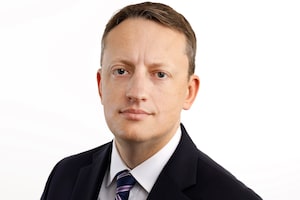Deputy Prime Minister and Finance Minister Chrystia Freeland smiles as she delivers the federal budget in the House of Commons, on April 7 in Ottawa.Adrian Wyld/The Canadian Press
Finance Minister Chrystia Freeland says there are still many details to work out with the provinces before Ottawa can deliver on the $5.3-billion dental care plan announced in Thursday’s budget.
Ms. Freeland and Prime Minister Justin Trudeau were in Hamilton on Friday as part of a tour to promote the housing-related aspects of the budget, but they were asked to provide further information on when Canadians can expect to benefit from a proposed national dental care program.
Ms. Freeland said Ottawa must now discuss the policy details with each province and territory, in a similar way to the recently completed talks over national child care.
“This is money we have put on the table and now we have to do the work of rolling up our sleeves, working carefully with provinces and territories, and figuring out exactly how we are going to implement this program,” she said. “And I am not going to claim it’s going to be easy or simple. A collaborative approach always takes time, and it takes lots and lots of conversations.”
Thursday’s budget announced $5.3-billion over five years and $1.7-billion continuing for a national dental care program for Canadians with family incomes of less than $90,000 annually. The program’s launch will be phased in, starting this year with children under 12. It will then be expanded to people under 18, seniors and persons living with a disability in 2023 before full implementation by 2025.
The budget described this as money that would go “to Health Canada to provide dental care for Canadians.”
A national dental care plan was not part of the Liberal Party’s 2021 election platform. However it agreed to the policy last month as part of a parliamentary co-operation deal with the NDP that will see the smaller party vote to keep the minority Liberal government in power until June, 2025, in exchange for action on a list of policy priorities, including dental care.
The NDP believes dental care should be a federally run program. However, the Canadian Dental Association has said it would be better if Ottawa transferred funds for provinces to run dental programs. Health Minister Jean-Yves Duclos has previously declined to say how it will be delivered. Mr. Duclos represents a Quebec riding and Premier François Legault strongly criticized the Liberal deal with the NDP as a federal intrusion on provincial affairs.
Neither Mr. Trudeau nor Ms. Freeland attended Question Period Friday, which was the only day sitting in Ottawa after the budget was delivered ahead of a two-week recess until April 25.
The Friday sitting included debate on the budget.
NDP finance critic Daniel Blaikie highlighted the dental care announcement as a key reason why his party agreed to co-operate with the Liberals.
“I think the most important element of the budget is the new dental care plan,” he said. “That is a big deal, and it is going to make a difference for a lot of people.”
Conservative MPs said the budget’s spending plan will hurt Canadians by driving up inflation.
“Yesterday’s budget only made things worse,” said finance critic Ed Fast. “There was no help for those being left behind by the NDP-Liberal government. No tax relief, no plan to fight inflation; only spend, spend, spend.”
A 2020 report by the Parliamentary Budget Office examined the NDP proposal for a federally run dental care program and said it would cost $1.5-billion a year, plus a one-time upfront cost of $3-billion. The report said about 32.4 per cent of Canadians – or 12 million people – have no dental insurance.
Our Morning Update and Evening Update newsletters are written by Globe editors, giving you a concise summary of the day’s most important headlines. Sign up today.
 Bill Curry
Bill Curry